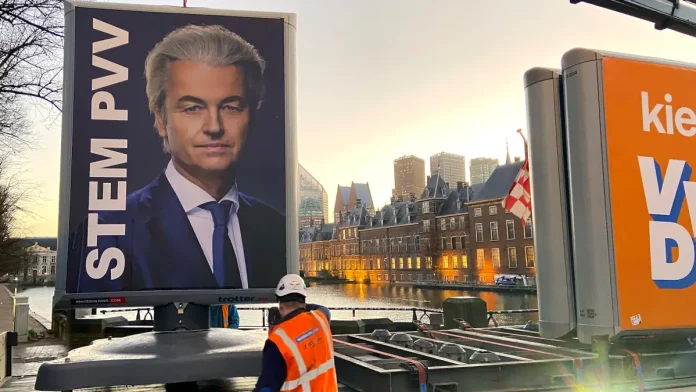The success of Wilders’ Freedom Party (PVV) marked a noticeable shift to the right in a country that has seen more than a decade of centrist governance, Euractiv reports.
Geert Wilders can now lead talks to form the next ruling coalition and become prime minister of the Netherlands. His party will win 37 seats in the 150-seat lower house of parliament, more than double his previous total of 17 seats in the last election.
Wilders’ victory was a warning signal to major parties across Europe ahead of next June’s European Parliament elections, which are likely to address the same issues as the Dutch elections: immigration, the cost of living and climate change.
“I would be very happy to become the Dutch prime minister, of course. We are eager to do that, because it gives us a lot of responsibilities, this huge win at the Dutch elections, and we really want to live up to it.”
Wilders stated that he was in favour of a referendum on whether the Netherlands should leave the EU, the so-called “Nexit.”
But the first thing is a significant restriction on asylum and immigration. We don’t do that for ourselves, we do that for all Dutch people who voted for us.
Wilders’ victory reflects the mood of Euroscepticism and the unwillingness of countries, such as Holland and Hungary, for the EU to interfere in their internal affairs.
